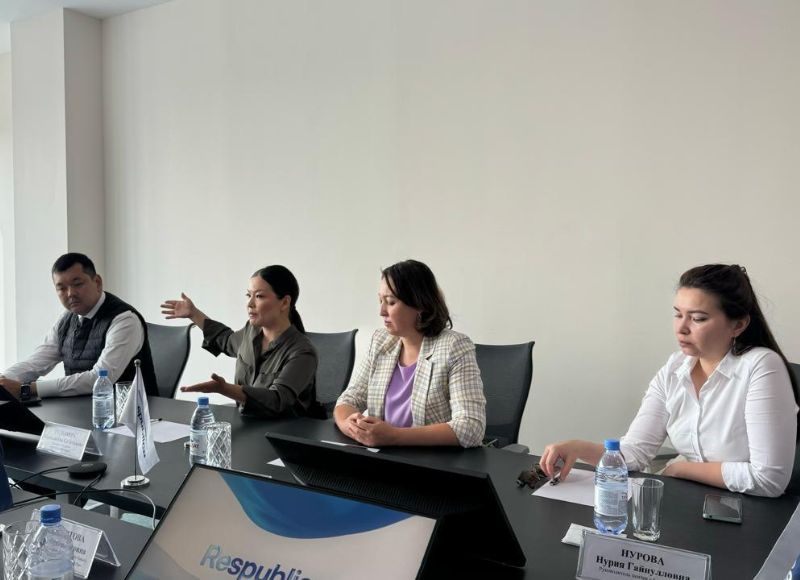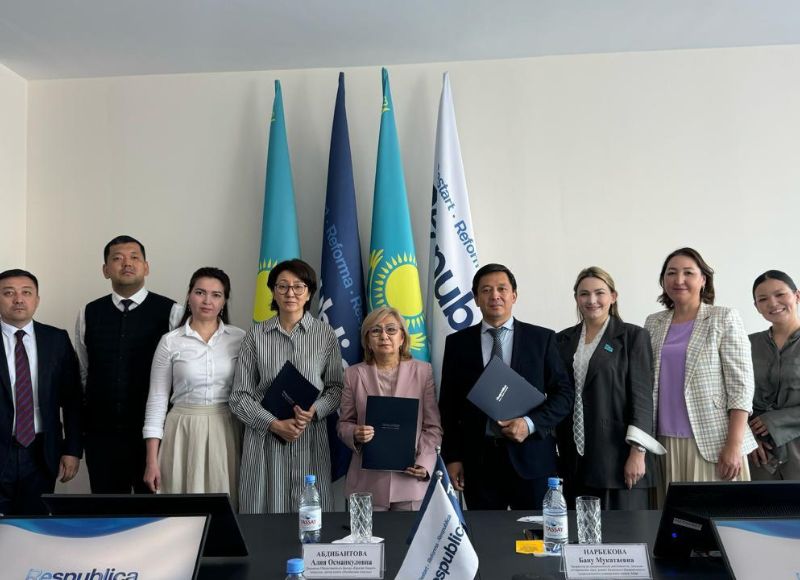Abai Kazakh National Pedagogical University, the "Respublica" Party, and the "Yerekhshe Bakyt" Foundation Join Forces in the Field of Inclusion
On May 16, 2025, a Memorandum of Cooperation was signed between Abai Kazakh National Pedagogical University, the public association of the "Respublica" Party, and the Public Foundation "Yerekhshe Bakyt" aimed at supporting individuals with Autism Spectrum Disorder (ASD).
The goal of the Memorandum is to unite efforts in supporting individuals with ASD, developing an inclusive environment, training specialists, and implementing modern scientific and correctional methods, including ABA therapy. This step will mark the beginning of a systematic and scientifically grounded approach to solving autism-related issues in Kazakhstan.
The event was attended by Member of the Mazhilis and representative of the Respublica party faction, Yekaterina Smolyakova, Vice-Rector for Academic Affairs of Abai Kazakh National Pedagogical University, Banu Narbekova, Director of the "Yerekhshe Bakyt" Public Foundation, Aliya Abdibaitova, Regional Director of the Bulat Utemuratov Foundation, Abai Nurmukhanov, as well as representatives of government bodies, the expert community, NGOs, parent associations, and specialized professionals.
Inclusive Education - A Priority Direction
Abai Kazakh National Pedagogical University places particular importance on inclusive education. A mandatory course titled "Inclusive Education" has been integrated into all teacher training programs at the university. Additionally, the university implements innovative educational programs in the fields of special and inclusive pedagogy:
• 6B01901 - Special Pedagogy (surdopedagogy, speech therapy, inclusive education);
• 7M01908 - Special Pedagogy: Support for Children with Autism Spectrum Disorders (IP);
• 7M01901 - Special Pedagogy: Surdopedagogy;
• 7M01902 - Special Pedagogy: Speech Therapy;
• 7M01906 - Special Pedagogy: Inclusive Education.
These programs aim to train specialists capable of professionally working with children who have special educational needs.
Autism Situation and Statistics
In our country, among the total number of 737,450 people with disabilities, 114,727 are children. Out of 379,048 working-age people with disabilities, only 111,404 are employed and earning income, thereby improving their socio-economic standing. A major issue remains the integration of children with disabilities into public life from the preschool age and their adaptation to independent living on equal terms. Unfortunately, progress in this area is not happening fast enough. This is evident in the following figures: at the beginning of the 2024-2025 academic year, the total number of university students was 624,500, but only 2,686 students with disabilities are enrolled in higher education institutions, of which only 5 are individuals with autism. There are more than 17,000 children with autism living in our country.





 Main
News
Main
News